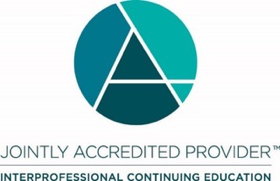Re-imagine wound care possibilities at #CAMPS2026
Mark your calendars! The biggest wound-care Summit of the year is returning in 2026 for the third year. The 2026 Cellular, Acellular, and Matrix-Like Products (CAMPs) Wound Care Summit, hosted by Journal of Wound Care, will take place on March 6–7, 2026, at the Hilton West Palm Beach in Florida.
The 2025 event was bigger and better than ever. JWC hosted over 350 delegates, top researchers, KOLs, physicians, surgeons, and scientific and commercial leaders for three days of cutting-edge discussions about the latest advances, regulatory environment, clinical innovations, and use of adjuvant therapies to help patients heal.
Attendees will be eligible to earn up to 10 CME credits, making this must-attend event not only an opportunity to connect with leaders in the field but also to advance your professional development.
We want to thank all our sponsors, speakers and participants for making the CAMPS Summit the must-attend event of the year for anyone involved in the caring of patients with wounds.
The JWC team is already developing what promises to be an engaging program to meet the needs of those practicing in this dynamic and progressive field.
We look forward to seeing you in 2026!
Mark Allen Healthcare
2026 Cellular, Acellular and Matrix like Products Wound Care Summit
March 6, 2026
West Palm Beach, FL
Joint Accreditation Statement
In support of improving patient care, this activity has been planned and implemented by Amedco LLC
and Mark Allen Healthcare. Amedco LLC is jointly accredited by the Accreditation Council for
Continuing Medical Education (ACCME), the Accreditation Council for Pharmacy Education (ACPE),
and the American Nurses Credentialing Center (ANCC), to provide continuing education for the
healthcare team.
Professions in scope for this activity are listed below.

Amedco Joint Accreditation Provider Number: 4008163
Physicians
Amedco LLC designates this live activity for a maximum of 10.00 AMA PRA Category 1 CreditsTM for physicians. Physicians
should claim only the credit commensurate with the extent of their participation in the activity
LOCATION
Hilton West Palm Beach

Located in downtown West Palm Beach, this venue offers a seamless stay for conference attendees, with direct access to the Palm Beach County Convention Center via a covered walkway. Just steps from CityPlace’s dining and shopping, and two miles from the Palm Beach waterfront, the hotel provides modern accommodations, a resort-style pool with cabanas, and exceptional on-site dining.
